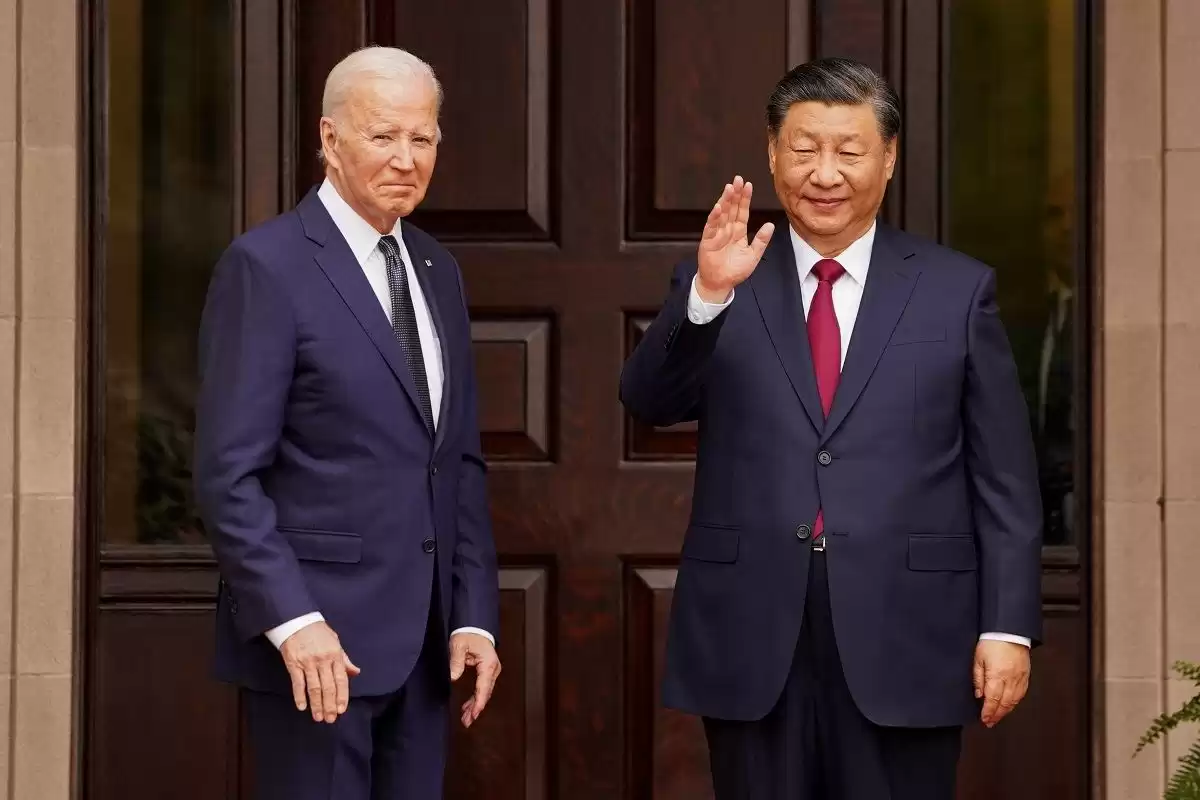Biden and Xi Meet after Year-Long Gap to Discuss U.S.-China Ties and Economy
"U.S. President Biden and Chinese leader Xi Jinping meet to ease tensions over military conflicts, drug-trafficking, and artificial intelligence."
U.S. President Joe Biden and Chinese leader Xi Jinping met for the first time in a year for talks at the Filoli estate in Woodside, California. The talks focused on easing friction between the two superpowers over military conflicts, drug-trafficking, and artificial intelligence. The leaders discussed the importance of ensuring that competition between the U.S. and China does not lead to conflict and managing their relationship responsibly. They addressed issues such as climate change, counter-narcotics, and AI that demand their joint attention.
Xi stressed that the U.S.-China relationship is the most important bilateral relationship in the world. He emphasized that turning their back on each other is not an option, and conflict and confrontation have unbearable consequences for both sides. The leaders also discussed a host of issues where the countries are on opposing sides, including Taiwan, the South China Sea, the Israel-Hamas war, Russia's invasion of Ukraine, North Korea, and human rights.
They met amid relative Chinese economic weakness, Beijing's territorial feuds with neighbors, and a Middle East conflict that is dividing the United States from allies. Xi is seeking a smooth summit with Biden to show those at home concerned about the economy and dwindling foreign investment that he can successfully handle relations between the world's two largest economies.
Biden has sought direct diplomacy with Xi, betting that a personal relationship he has cultivated for a dozen years with the most powerful Chinese leader since Mao Zedong might salvage ties that have turned increasingly hostile. The two sides are engaged in what Mao referred to during China's civil war as "talk and fight, fight and talk".
Biden is expected to press Xi to use his influence to urge Iran to avoid action that could spread the Israel-Hamas conflict across the Middle East. He is also expected to raise alleged Chinese operations to influence foreign elections and human rights, including U.S. citizens Washington believes are wrongly detained in China.
U.S. officials expect concrete steps to restore staff-level conversations between the countries on issues from military-to-military communications, to reducing the flow of fentanyl, managing artificial intelligence, and on trade and climate. Before the meeting, both countries backed a new renewable energy target and said they would work to reduce methane and plastic pollution, renewing climate cooperation suspended after former U.S. Speaker of the House Nancy Pelosi visited Taiwan in 2022.
However, on Wednesday, China objected to a U.S. proposal for APEC members to incorporate sustainability and inclusivity into trade and investment policies. Biden, 80, presides over an economy that has outperformed expectations and most rich nations after the COVID-19 pandemic. Xi, a decade Biden's junior, has tightened control over policy, state leaders, the media, and military and changing the constitution. Recently, economic challenges have thrown the country off its three-decade growth trajectory.
Analysts say Xi's position may be tempered by concern about the November 2024 U.S. presidential election and the potential for a less friendly U.S. president in Donald Trump. "Beijing stands to gain more from collaborating with, rather than boycotting, the Biden administration during its remaining tenure," said Tong Zhao of the Carnegie China think tank.











Comments on Biden and Xi Meet after Year-Long Gap to Discuss U.S.-China Ties and Economy